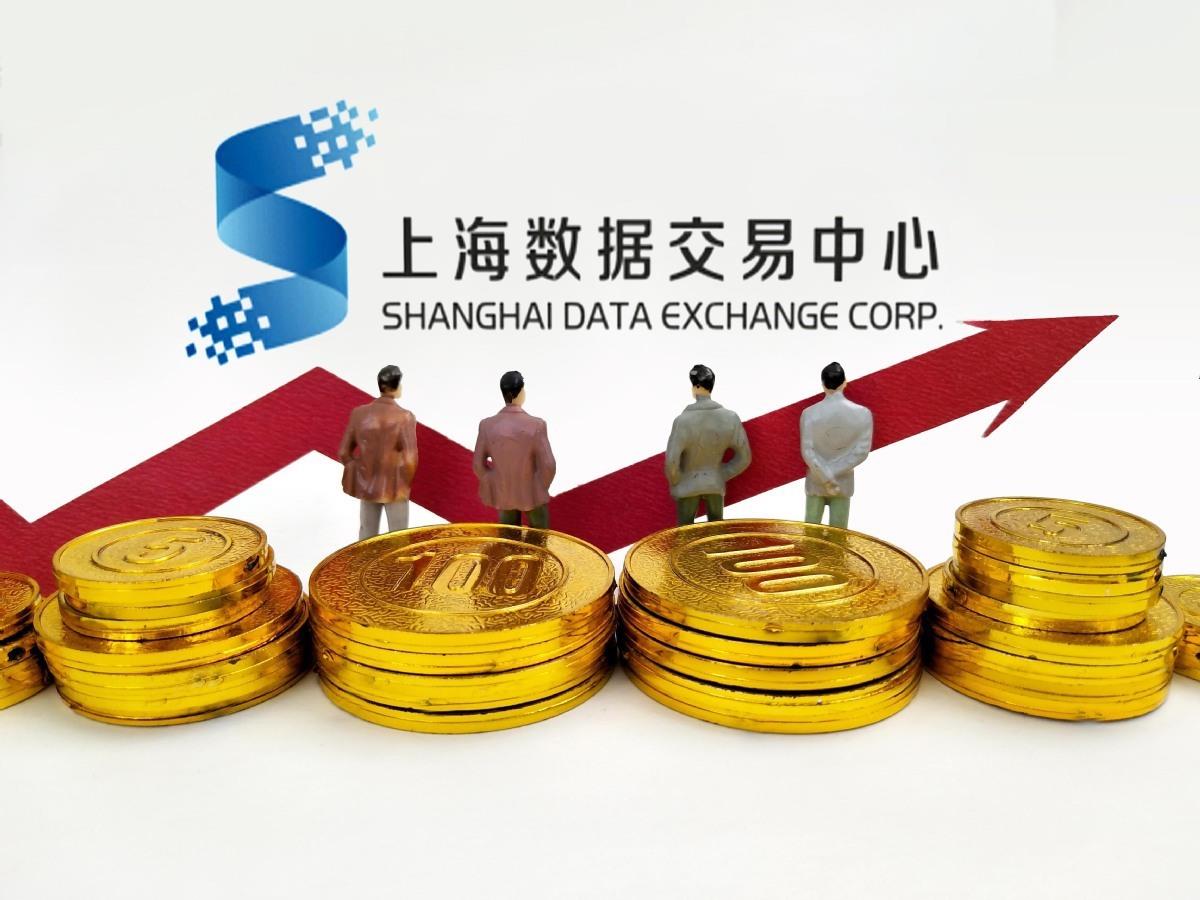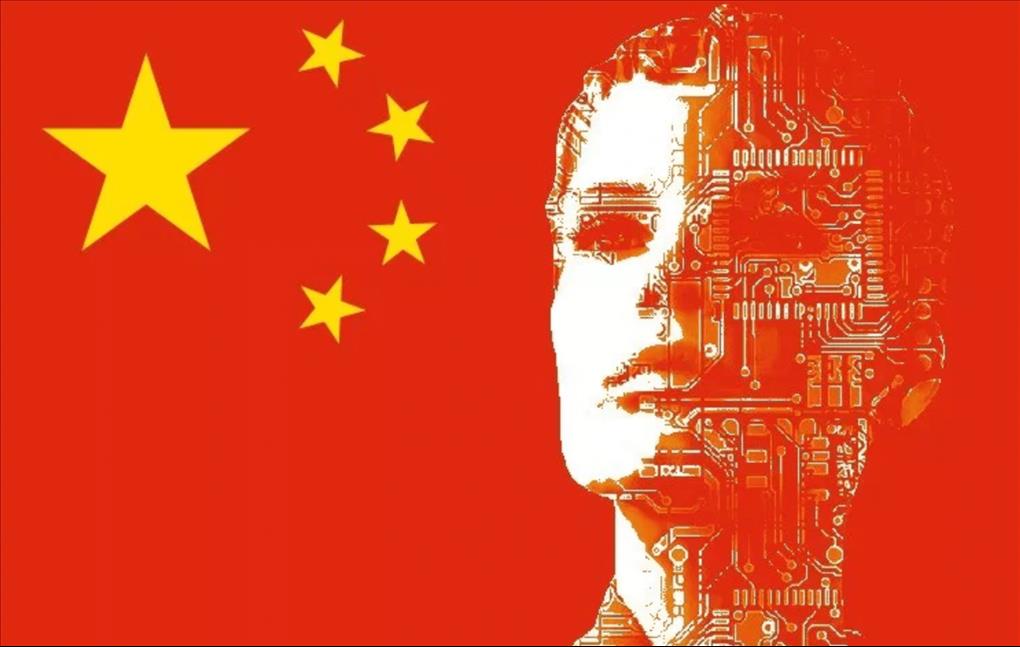
Shanghai's Data Exchange to fuel Fourth Industrial Revolution
(MENAFN- Asia Times) NEW YORK – Shanghai's new Data Exchange began trading on November 26, in what might be one of the transformational events of the Fourth Industrial Revolution. Initial data offerings include 20 products from China Eastern Airlines, Cosco Shipping, China Mobile Insight and other Chinese firms, according to the Exchange's website .
The creation of capital markets in the West made it possible to mobilize the savings of the middle class to build the canals and railways that supported the First Industrial Revolution.
The 4th Industrial Revolution is being driven by data. The emergence of an efficient market in data has implications as profound as the founding of the Amsterdam Stock Exchange in 1601, the funding of America's public debt in 1790, or the financing of the debt of the Napoleonic Wars .
China's emphasis on data as a factor of production breaks not only with Marxist economic theory but also with the classical English economics that Marx adapted. From the standpoint of economic theory, it is perhaps the most anti-communist innovation of the past century, and all the more remarkable as a programmatic statement of the Chinese Communist Party.
Value maximizationBy making the collection and sale of data transparent, the Shanghai Exchange allows companies that collect data to maximize the values of their businesses, while permitting purchasers to use the data to raise the productivity of their businesses.
The object is to put data into the hands of entrepreneurs who can use it most efficiently – just as Western stock and bond markets allocated savings to the businesses that could earn the highest risk-adjusted returns.
If artificial intelligence (AI) is the engine of the 4th Industrial Revolution, data is its fuel. Hundreds of millions of digitized medical histories and DNA scans make it possible for AI-driven research to invent new pharmaceuticals at fractional cost compared with the old trial-and-error methods.
“Smart cities” can match every passenger and package to a conveyance, and 5G communications make it possible for autonomous vehicles to bob and weave through traffic.
Smart logistics can move goods through automated ports onto self-driving trucks and to robotic warehouses where embedded chips direct every item in trade to its destination.
The possibilities are endless, and a few of them (especially in port automation) are at advanced stages of implementation in China.
But the challenges to harvesting value from data are more complex than digging coal or pumping oil. There is an enormous market for data in the West, but it rests on questionable (and possibly illegal) data harvesting by tech giants – which deliberately occult the kind of data they gather from customers – and an even dodgier network of data brokers.

Big tech CEOs: Twitter's Jack Dorsey, Facebook's Mark Zuckerberg, Google's Sundar Pichai. Image: YouTube
The regulatory environment for data is almost nonexistent. That could change unpredictably and drastically. For example, a Washington Post study detected 5,400“app trackers” siphoning data from iPhones.
Strategy-business.com reported in 2019 that“about 3.7 zettabytes of data generated by people — an average of about 117 gigabytes of data per Internet user — are stored per year. About 25% of that is stored by Google (by far the largest percentage of user data stored by any single company), and another 1% by Facebook. By 2025, average data generation per person is expected to reach almost 300 gigabytes.”
Data brokerage revenue in the West exceeds $200 billion a year , much of that personal and private data. Hackers created a phony LinkedIn profile and obtained complete Internet search histories for 3 million Germans. Apple and Google covertly harvest user data, and hackers have penetrated their software to steal even more.
China's initiative is the world's first attempt to trade data under established regulations with transparent transactions. If it succeeds, its contribution to economic efficiency will be comparable to the creation of well-regulated capital markets in the West.
Data as 4th production factorData, in China's view, comprise a factor of production on par with land, labor and capital. The National Bureau of Asian Research wrote in August 2021:“In 2020 the Chinese Communist Party (CCP) Central Committee and State Council added 'data' to land, labor, capital, and technology as a new factor of production in its 'field-based allocation system and mechanism.'”
This elevation of data, the article says,“is indicative of a vision for a future economy where data drives development. Indeed, according to the Chinese Academy of Information and Communications Technology, a key distinction between data and the traditional production factors is in the multiplier effect – that data can amplify other factors of production such as labor and capital and produce even more significant economic gains.”
China has natural advantages over the West in data gathering, especially in critical fields such as health, where Western privacy laws inhibit the collection of individual medical records. American health providers are so shy of possible legal consequences that they refuse to store data even when patients give explicit consent.
As the National Bureau of Asian Research study reports,
Economists figured out in the 18th century that capital, along with land and labor, was a decisive factor in production (in contrast to the French Physiocrats, who insisted that all wealth came from land).
Anglophone historians attribute the three-factor concept to Adam Smith. Before industrialists invested in steam engines and power looms, the concept of“capital” as a factor of production was nebulous. Most industry was handwork, until capital investment multiplied the power of labor.
Some 20th-century economists add“entrepreneurship” as a fourth factor of production, following Frank Knight's 1921 observation that entrepreneurs' reward for accepting uncertainty differs fundamentally from rent of land or return to capital.
Orderly markets in the factors of production are key to economic efficiency. As Peruvian economist Hernando de Soto wrote in 1986, the absence of clear land titles is a huge obstacle to the economic development of Latin America.
Regulation of public offerings by the US Securities and Exchange Commission and similar government entities in the West is key to public confidence in markets for risk capital.
What Alexander Hamilton called a“well-funded public debt” was the foundation for America's enormous growth during the 19th century, and the system of government debt established in the wake of the Napoleonic wars supported Europe's Industrial Revolution.
That is why the Shanghai Data Exchange may have such importance. As data take a place beside land, labor, capital and entrepreneurship as a factor of production, efficient markets in data will play a role as fundamental as markets in capital and land.

Photo: China Daily Meanwhile, in the US
Big Tech control of data in the United States is less a help than a hindrance to productivity, according to a recent Congressional study, as I reported in a 2021 essay in American Affairs.
The US Congressional Subcommittee on Antitrust wrote in 2020:
To put it simply, companies that once were scrappy, underdog startups that challenged the status quo have become the kinds of monopolies we last saw in the era of oil barons and railroad tycoons. Although these firms have delivered clear benefits to society, the dominance of Amazon, Apple, Facebook, and Google has come at a price.…. These firms wield their dominance in ways that erode entrepreneurship, degrade Americans' privacy online, and undermine the vibrancy of the free and diverse press. The result is less innovation, fewer choices for consumers, and a weakened democracy.
China's regime of data regulation and public data markets is an attempt to avoid the American productivity sinkhole created by the tech monopolies.
The lobbying power of the large US tech companies has effectively stalled attempts to regulate them. Control of data gives China a power lever against Western efforts to restrict China's access to Western technology. With time and effort, any technology can be reproduced, but the West, for now, cannot match China's data resources.

Legal Disclaimer:
MENAFN provides the
information “as is” without warranty of any kind. We do not accept
any responsibility or liability for the accuracy, content, images,
videos, licenses, completeness, legality, or reliability of the information
contained in this article. If you have any complaints or copyright
issues related to this article, kindly contact the provider above.

















Comments
No comment